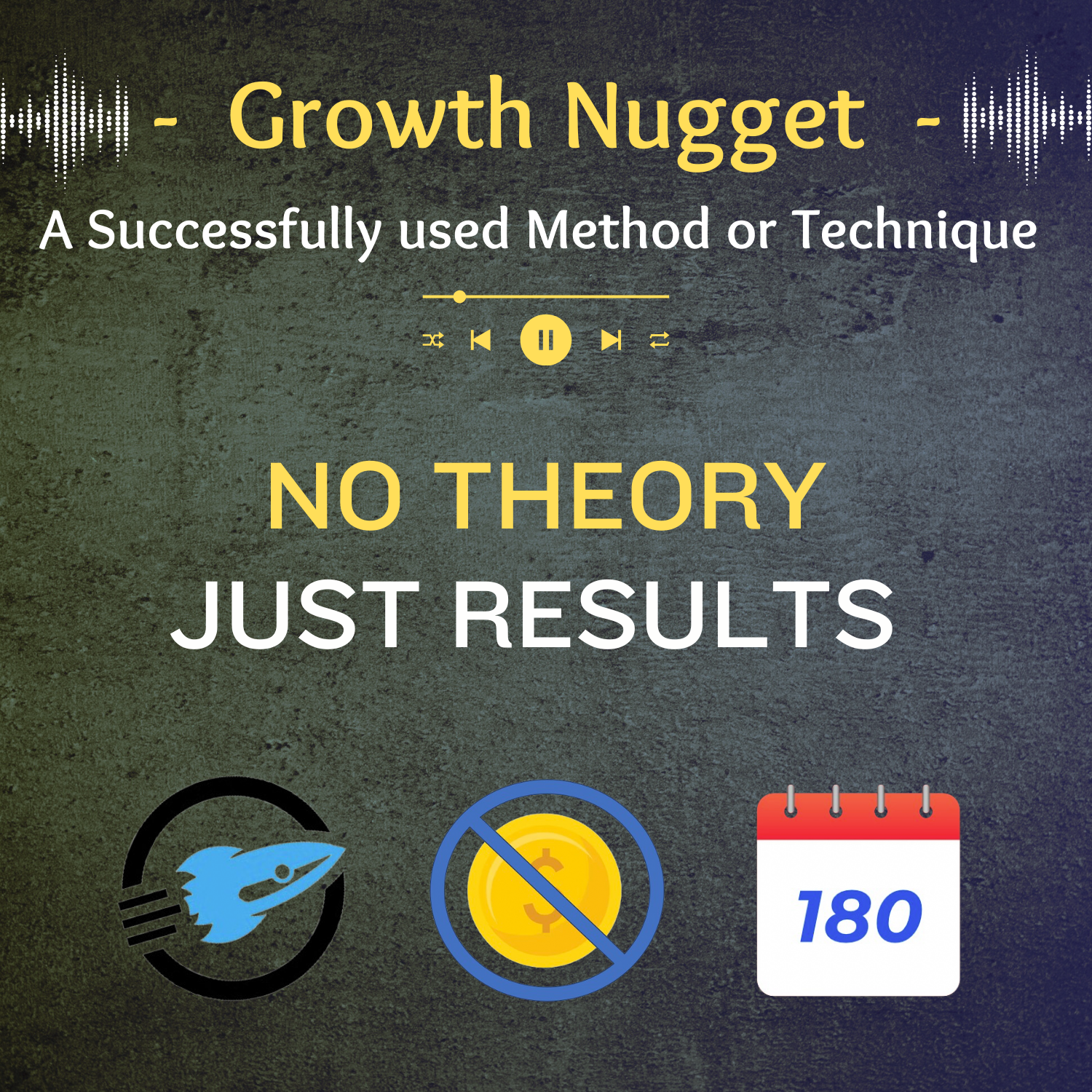Pure Growth Gold – Forecasting 50
$15.00 Original price was: $15.00.$7.50Current price is: $7.50.
Should be part of an annual continuing-ed. Profound.
Possibly the most profound nugget of them all. Covered inside are four small nuggets that tie together and explain the following:
Why some divisions and companies explode with growth, year over year
Why some divisions and companies simply implode at every turn, no matter how great their product or marketing.
Have you ever been around a high-flying business leader or business manager? Have you heard the corporate stories of people that have been moved from division to division and everything they touch, GROWS!!!
If you’d like to hear what might be responsible for some of that growth, it just might be inside this nugget.
This is on the “Must be used by all companies in all industries” list.
(0:00 – 0:17)
This one is huge. You guys have heard me before talk about the definition of selling. According to Brian Tracy is a transference of feelings and building a business is simply the stacking of sale after sale after sale.
(0:18 – 0:29)
And I do not mean selling your product, selling your services. That’s not what I’m saying. Every single business has an initial sale and the sell is we got to sell ourselves on the idea.
(0:29 – 0:41)
The second sale we make is we tell our idea to other people to get some buy in. I take take IBM, Thomas Watson. When he originally founded that company, he originally had an idea.
(0:41 – 0:44)
He sold himself. Yeah. You know what? I can take this to market.
(0:44 – 0:51)
But then he’s got to test his theory. So he starts selling it to other people before it’s anything. And if other people, yeah, Thomas.
(0:51 – 0:52)
Wow. Yeah. You should do that.
(0:53 – 0:56)
Wow. Great idea. Or for some people, they get the exact opposite.
(0:57 – 0:59)
Oh, you’ll never make it. That’s stupid. Don’t do that.
(1:00 – 1:06)
That’s what they need. Also, the negative reinforcement. But the point is, sale number one is you got to sell yourself.
(1:06 – 1:21)
Sell number two is you got to sell others. But then it gets interesting because even if you’re not a salesperson to get anything moving, you should, you sold some kind of a supplier, some kind of vendor. You, you sold a platform.
(1:21 – 1:41)
You sold someone on taking a chance on you. And then number four, either verbally or through a website or through flyers, pamphlets, whatever, trade shows, you had to, at some point sell customers on buying your goods and services. And then once things start going, then here comes the big sale.
(1:41 – 1:52)
You’ve got to sell employees to work with you. You’ve got to sell joint venture partners to work with you. You’ve got to sell affiliates that you’re a quality individual and they should work with you.
(1:52 – 1:58)
Here’s the bottom line. I don’t care how big or how small your business is. You never stop selling.
(1:58 – 2:09)
That’s it. So if this is the case, which it is, I want to cover, cover some of the stumbling blocks to businesses growing to what I’m going to call full maturity. So I think everything is entropic.
(2:09 – 2:49)
I think at some point every business is going to have a little bit of a, you know, an issue at some point because the law of entropy, but the reality is I think every business, uh, should, should reach full maturity for its individual, uh, market, so to speak. So one of the big challenges or the big stumbling blocks that every business has from day one is the how or the actual method that one chooses to communicate with. So what I’m going to do today is provide some of my real life case studies over 24 years that have helped our company, uh, grow.
(2:49 – 3:16)
And I, and we’ve had, as, as some of you know, from previous in 24 years, we’ve had two different segments where we’ve had five years in a row of doubling the previous year sales. So we have definitely, and we’re in the middle of it right now. We have definitely experienced hyper growth, but we’ve also had two episodes where we’ve gone one to three years, completely flat, one year, even dropping.
(3:16 – 3:32)
Um, and you can definitely track it back to some forms of lack of communication. So let’s jump right in. I want to start with just kind of a, like a story and I want you to, everybody to picture you’re walking down Michigan Avenue in Chicago.
(3:32 – 3:45)
If you don’t know where that is, it’s called the magnificent mile. It’s the biggest, busiest street in Chicago. And I want you to pretend that you are downwind of a homeless person.
(3:45 – 3:50)
And they’re actually very, they’re very proud. They, they wouldn’t want to get a job. They wouldn’t want to get a home.
(3:50 – 4:09)
They, they, they, they love living where they live. Um, they’re, they’re a proud individual, but the bottom line is this person, you know, whether it’s a by choice or not by choice, uh, they have, they have not bathed in about 10 days and you’re downwind and you’re with a couple of people. And the sun is just starting to set.


